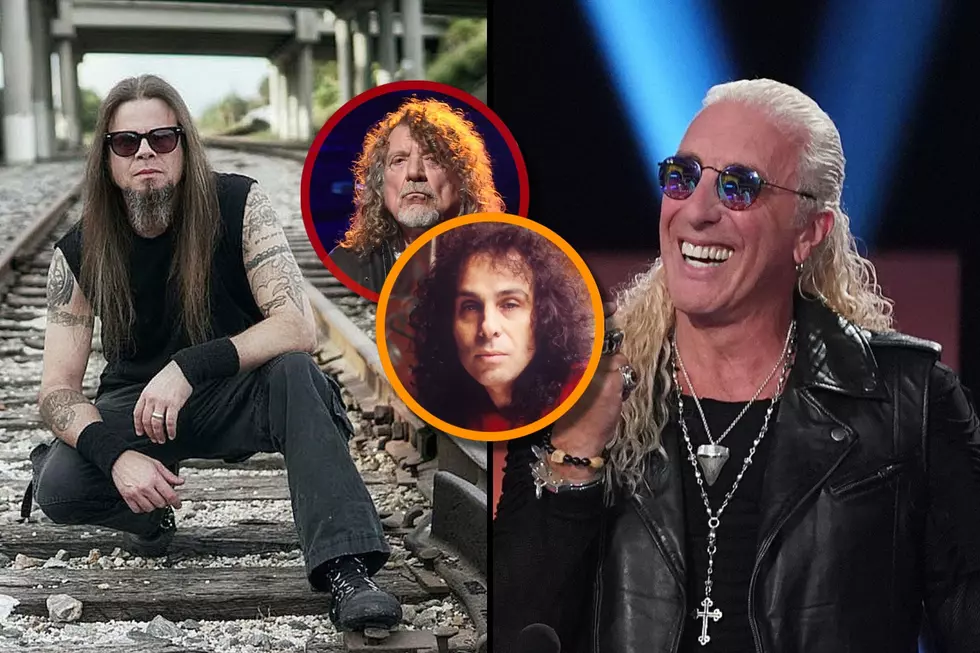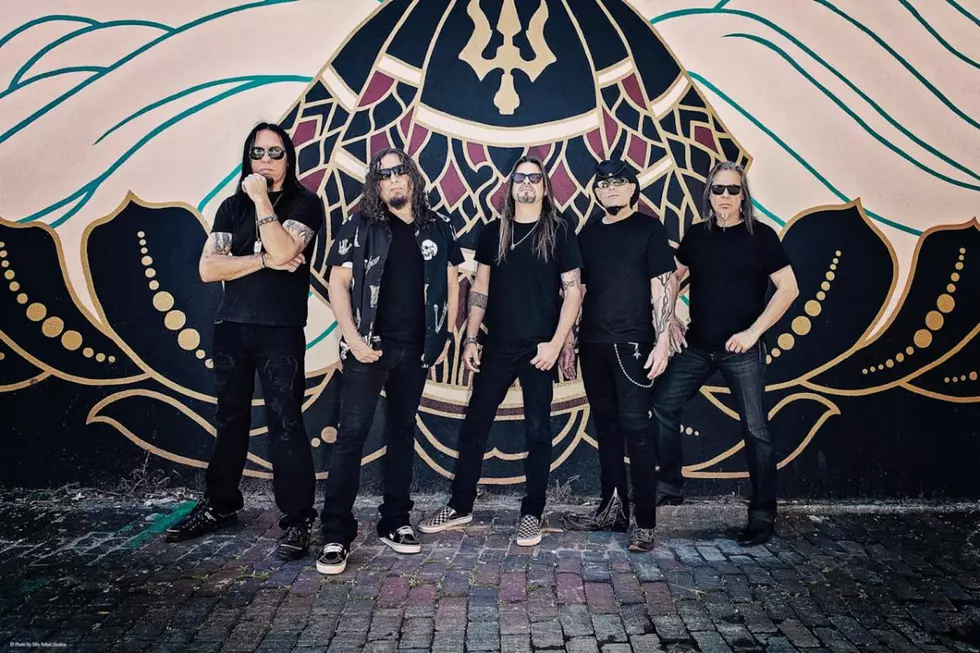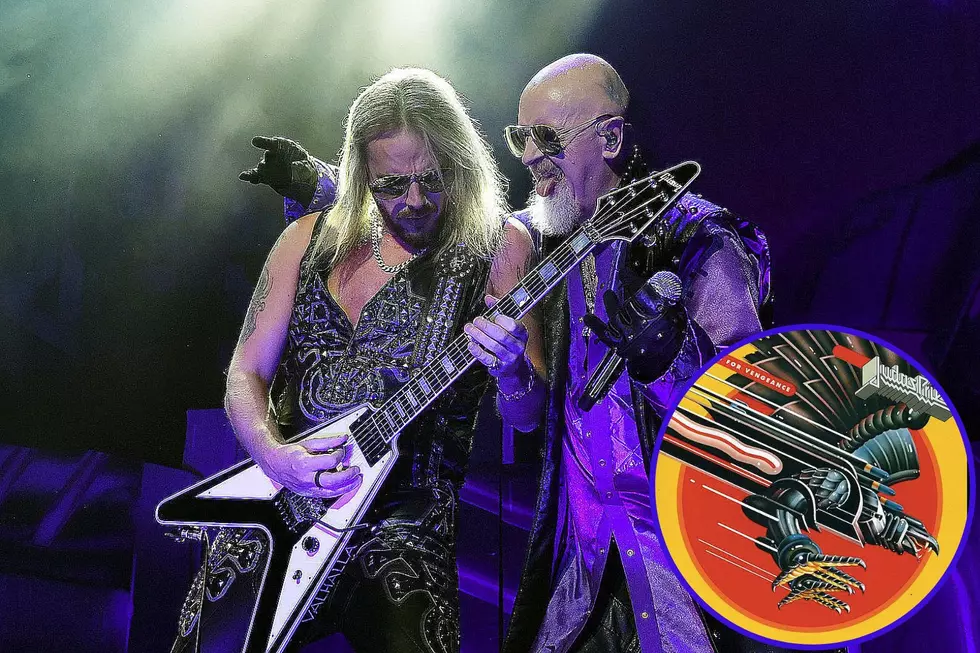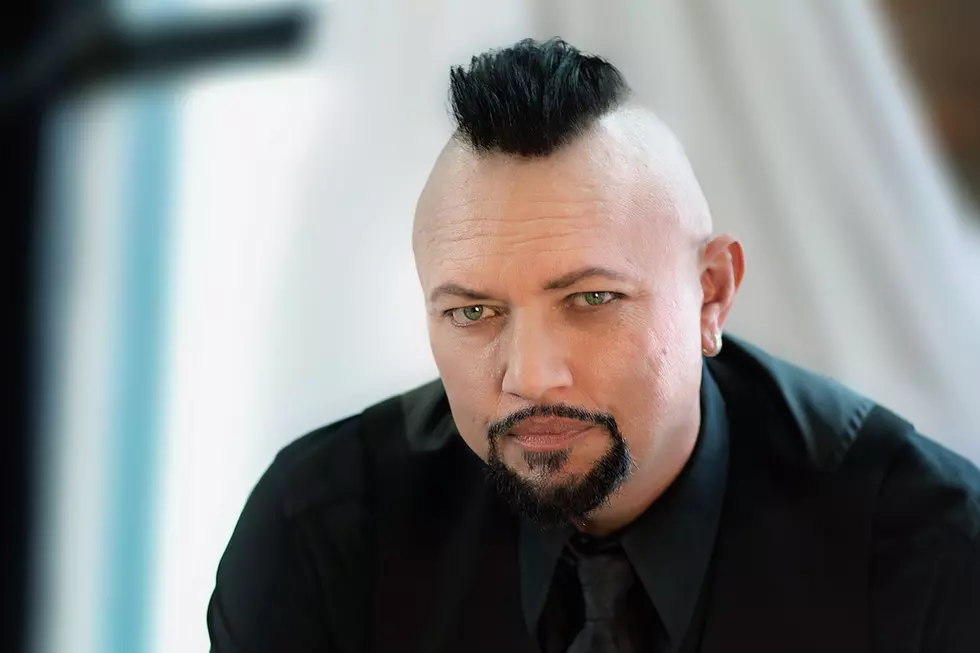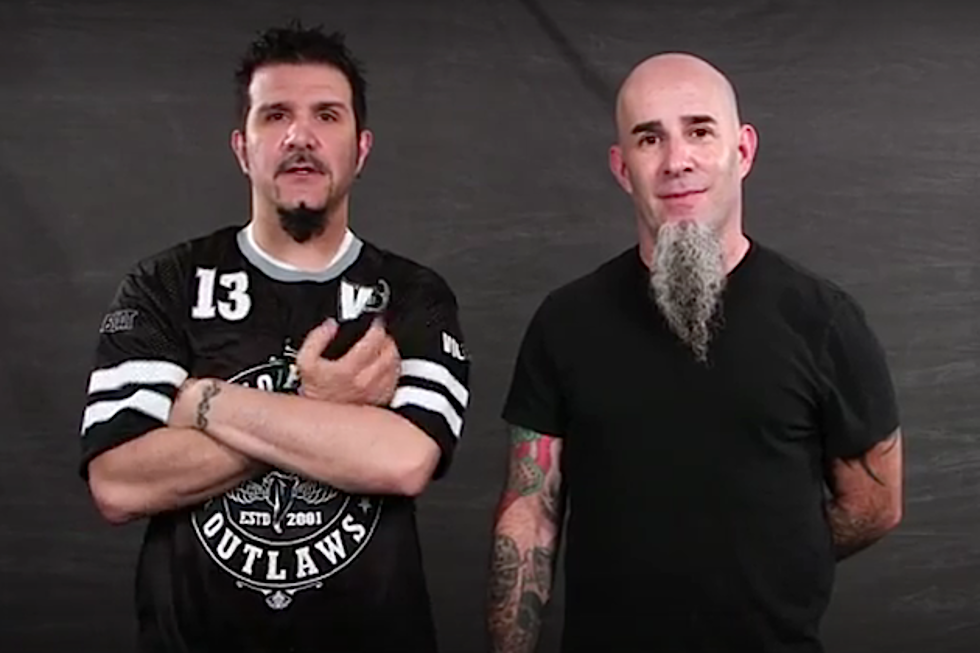
Queensryche Frontman Discusses the Building of an ‘Empire’
In the early '90s, rock music was in a major state of transition. Thanks to the success of Seattle bands like Nirvana, Soundgarden and Pearl Jam, Sunset Strip hair metal and Bay Area thrash were trendy no more. Fans of heavy rock music were being encouraged by the media to embrace grunge, industrial bands like Nine Inch Nails and alternative outfits such as Helmet to remain in the know.
Fortunately for Seattle melodic metal outfit Queensrÿche, they managed to release their most commercially successful album, 'Empire,' right before the hard rock nation -- and the rest of the music industry -- started reaching for anything that smelled like teen spirit. The disc, which has been remastered, will be reissued on Nov. 9 along with a bonus concert CD and DVD.
Noisecreep talked to Queensrÿche vocalist Geoff Tate about the building of an 'Empire,' the song that took the band to the next plateau of popularity, playing the famous Hammersmith Odeon in London and eating in deafening silence with Rush guitarist Alex Lifeson.
Listen to 'Resistance'
Is it hard to believe that 20 years have passed since you released 'Empire'?
It's strange. Sometimes it seems like it was just yesterday, and sometimes it feels like it was 100 years ago.
The album was more melodic, less progressive and less theme-oriented than 'Operation Mindcrime.' Were you striving to make a more straightforward record?
I have to kind of disagree with you on the whole commercial thing. We've always written songs that can be on the radio – and that's the definition of commercial. We have lots of songs like that on every record. 'Mindcrime' had several singles on it. I think the thing with 'Empire' was we had a million-selling record with 'Mindcrime,' and the record company was saying, "Oh, well we can really score on this if we really sink some money into it."
So they threw millions into promoting 'Empire.' We had TV and all the video outlets, and we made six videos for the album. That's a huge push. If you throw millions and millions of promotional dollars at most anything, you're gonna get some payback, and they definitely got it. The album went triple platinum.
Did the ballad 'Silent Lucidity' break the record?
It was all a perfectly planned and executed promotional campaign. It started with a track from 'The Adventures of Ford Fairlane' movie soundtrack, 'Last Time in Paris,' that got huge amounts of radio play over the summer. Then when 'Empire' came out in the fall, they hit with three singles before they released 'Silent Lucidity.' There was a single every six weeks that had a video to it as well. And then they hit with 'Silent Lucidity,' which they figured was gonna be their biggest hit -- or what they threw all their money into -- and yeah, it worked. It hit number four on the pop chart and then they followed that with two more singles that did even better. It was great.
Did you know 'Silent Lucidity' was the standout track the moment you recorded it?
It's funny. 'Silent Lucidity' was actually written on acoustic guitar, like a lot of our songs. We start on acoustic and then we add different instruments to it later and modify it. But we had recorded 'Silent Lucidity,' and our producer Peter Collins said, "You know, it's a good song, but it just doesn't do it for me. I don't think it's strong enough to go on the record." And our guitarist Chris DeGarmo and I were talking to him about it, and we said, "Well, Michael Kamen is going to write some orchestration to this and we think it will really change the song quite a bit."
It wasn't until the end of the recording session that Michael got back to us with the orchestrations. And when we got them in the mail we listened to the playback and it was just beautiful. He came up with this gorgeous, lush orchestra for it and when the song was over Peter was grinning and he said, "OK, my mind is changed now."
The song seems influenced by Pink Floyd.
'Silent Lucidity' definitely has a Pink Floyd vibe, but if you listen to that at Pink Floyd's 'Comfortably Numb,' they're not similar at all except that Michael Kamen wrote all the orchestration to it. We met him back in 1984 on 'The Warning' album. He had just finished doing 'The Wall' and 'The Final Cut' for Pink Floyd and he has his own signature sound and his style of melody composition and that definitely comes through on 'Lucidity.'
The band entered the creation of 'Empire' coming off the commercial success and heavy touring of 'Operation Mindcrime.' Was that a stressful period for Queensrÿche, or were you enjoying the ride?
The 'Mindcrime' tour was a long one and we finished that in '89. The thing I remember the most about writing 'Empire' was being able to be in one place for a long period of time. Being home in Seattle was great. I moved to the middle of the city and bought a boat, and I lived on my boat. And I just soaked up living a normal every day life and catching up on everything. And that's what all the lyrics are about -- relationships and being in one place and observations of living in the city. I was addressing social issues that were prominent at the time that are still timely now, homelessness and environmentalism.
Is that was 'Resistance' is about?
'Resistace' was written about protecting the environment. This is a cause I felt connected to when we wrote the song and a cause I still feel strongly about today.
Was everyone in the band getting along when you wrote 'Empire'?
Yes, it was a really tight knit group. It still is. Everybody gets along very well. This next August will be our 30th anniversary as a band. It was a good period. We had the beginnings of the green movement -- or at least the resurgence of it from the '60s and early '70s, and I was interested in that.
How long did you spend writing the album?
The whole process took about a year, from writing to recording and we were in the studio for about three months.
Did the songs come naturally or was it more of a struggle?
Writing is never easy and it doesn't happen by itself. You have to make it happen. So this was just a record as usual. We sat down and talked about what we wanted to accomplish with the record, which we always do. And we wanted to write an album of individual songs, not a concept album. And that's what we did. The only thing we really focused on that was different was we wanted to take a less is more approach to the writing.
So we'd write a song and then sit there and analyze it and start taking everything out of it that really wasn't essential to the song. So the songs have a real open feel to the arrangements, and that's one thing that makes that record sound so good. There's not a lot going on within the songs so they come across sounding bigger and more open.
Any memorable moments in the studio where something came together just right and greased the wheels for what followed?
Every record is like that. You have little breakthroughs here and there where you have an outline for the song, and somebody in the band comes up with a melody line that's out of the blue, and you go, "Oh, wow, that's great. Let's repeat that and use that again, or modify it." That happens all the time.
The title track sounds like it could have been on 'Rage for Order' or even 'Operation Mindcrime.'
That was the first song written for the 'Empire' album, and it had the definite feel of what we had done before. It was the only song that wasn't recorded at the same time as all the other ones. That one was done in the Seattle area and everything else was done in Vancouver. Peter and James Barton recorded 'Empire' as well. I can't remember why it was recorded separately. I think we had some studio time at Triad -- which is a studio we worked at previously -- and Tom Hall, our friend who ran the studio, said, "Why don't you come in and record what you got demo-wise." So we did, and recorded 'Empire' there.
What do you like most about 'Empire'?
I like the sound of the record quite a bit. It's one of those records that sound engineers use to reference PA systems in studios. When producers go into a new studio they'll put that record on to make sure the frequencies are all right or the control desk and speakers are set up correctly. From an audio standpoint it's got everything you need.
Any good stories from the sessions?
We were mixing the record in Lake Geneva, Wis. in a place called Royal Recorders and Rush was in town. Peter had worked quite a bit with Rush over the years and was friends with them. And Peter invited Alex Lifeson down to the studio, and he ended up spending the whole day and evening with us. We had a funny moment. Back then, you always had meals catered into the studio. So we had dinner brought in and they set it up in the big room of the studio because it had the most room for all of us. There was a big table set up with linens. And it was a soundproof room, so it's super quiet. You can hear everyone chewing their food, and the clink of the sound of the cutlery hitting the plate was deafening.
We were all getting kind of freaked out. And Alex was geeking on the sound because it was so quiet. So we had one of the assistants bring in some speakers and turn music on so there would be some ambient noise in the room so we could finish eating.
The reissue of 'Empire' comes with a live CD. Do you remember that show?
It was recorded in London in 1990 at the Hammersmith Odeon on that tour. At the time, the Hammersmith was the venue for rock bands to play at in London. It was a really cool, old theater that was built and designed for orchestras. It was designed in the turn of the century and it sounded great and everyone knew it. There were a lot of pubs in the area and people would meet before the show at the pubs and then come back to the club afterwards.
Unfortunately, it doesn't exist anymore. But at that show we did a lot of songs from 'Empire' and they sounded really great, and we also did some older stuff like 'Walk in the Shadows' and 'Take Hold of the Flame.' They also film an interview Chris and I did on camera talking about the making on the record.
When you were in the sessions you did some extra tracks, a cover of Simon and Garfunkel's 'Scarborough Fair' and two originals 'Dirty Lil Secret' and 'Last Day in Paris.'
Those are from different time periods or close around the same time period. The song 'Scarborough Fair' was in our repertoire at the time. We played it live a few times, and we were goofing around with it in the studio and Chris had an idea of recording it with an electric sitar. And it sounded really cool, so we recorded it.
What do you remember about the tour for 'Empire'?
I remember it was long. I know we toured 15 months on that record. Around that time, Seattle was going through a huge construction boom. For the longest time, there were on ramps and off ramps that just went nowhere. They were half built. I remember coming home and going back to my local coffee shop in the morning the first day I got home, and my whole block was gone. It was kind of a strange feeling. It was like I never got off tour.
But that was a long tour. We played 40 countries and played the Rock in Rio festival in Brazil. It was a giant show; 225,000 people were there, and they had to helicopter us into the place because all the roads were blocked. And we did the Monsters of Rock festival and all the major festivals. It was definitely crazy there for a while.
More From Noisecreep



